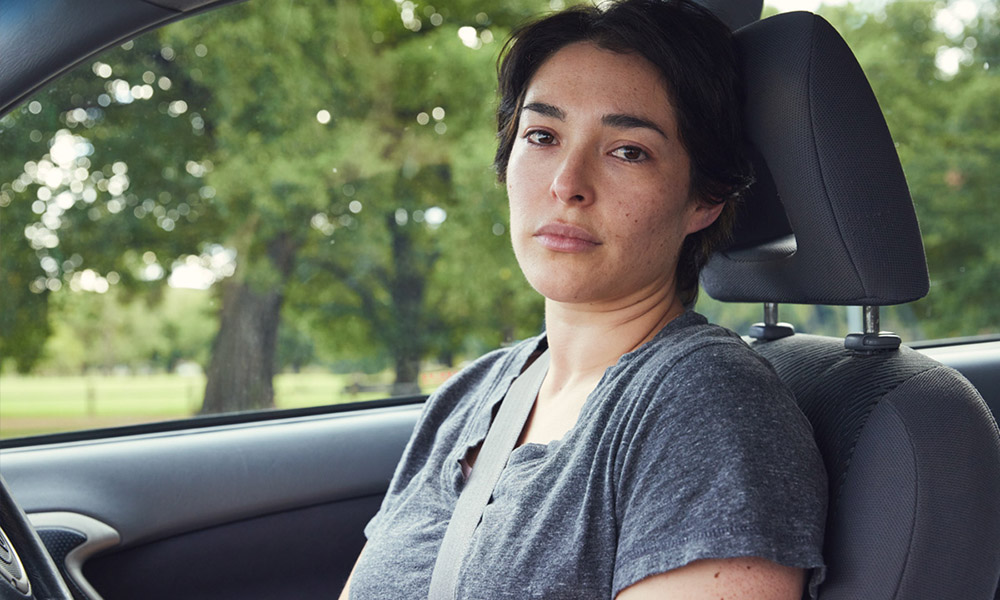Mental health now the top national concern for Australian young people
Major research undertaken by Mission Australia has found that for the first time mental health is the number one issue of national concern for young people in Australia.
Now in its 16th year, the Mission Australia Youth Survey continues to be the biggest annual survey of its kind. A record 24,055 young people aged 15 to 19 took part in the Youth Survey 2017, identifying mental health, alcohol and drugs and equity and discrimination as the most important issues in Australia today. Mental health topped the list of issues for the first time in the survey’s history, with around one-third of young people (33.7%) identifying it as a national concern, more than doubling since 2015 (14.9%).
Notably, many of the top issues of personal concern reported by young people are related to their own mental health, including coping with stress, body image and depression, while mental health was also identified as one of the major barriers to achieving work or study goals after school.
Mission Australia’s CEO James Toomey said “Important work is already happening to destigmatise mental health issues and it is significant that young people are becoming more aware of the impacts mental illness can have on their lives and those around them. However, the fact that mental health has climbed to become the top national concern for young people reinforces that much more needs to be done.
“Young people need a coordinated, comprehensive and cohesive national response to ensure they can access the right mental health supports when they need them.
“It makes sense to invest in universal mental health programs in schools, as well as community-based mental health services, and to design services with young people to ensure they are youth friendly.
“This report tells us that many young people facing challenges reach out to friends and family for support. I can tell you from experience that family members and friends need to know how to navigate the bewildering variety of services and information sources that are available, and be provided with targeted information about ‘mental health first aid’ and other practical supports that exist,” said Mr Toomey.
For Australia to acknowledge the fact that mental health is a huge issue and do something about it, and the other issues surrounding mental health such as drug use, homelessness and family breakdowns. Female, 19, WA
Four in ten young people who completed the survey reported feeling extremely confident or very confident about achieving their study or work goals after school. However, the proportion of young people feeling either not at all or only slightly confident in their ability to achieve their post-school goals has doubled over the past two years (from 10.4% in 2015 to 19.1% in 2017).
More than half (51.6%) of young people saw barriers to achieving their post-school goals with the most common barriers being academic ability (22.0%), financial difficulty (14.2%) and mental health (13.2%). A greater proportion of females than males indicated that they saw these barriers as obstacles to achieving their goals, particularly in the case of academic ability where 26.2% of females indicated it was a barrier compared to 16.3% of males. Over twice the proportion of young people in regional areas than those in major cities think that where you live was a barrier to achieving their future plans (11.9% compared to 5.0%).
Mr Toomey said, “While it’s encouraging to see many young people are optimistic about achieving their post-school goals, more than half told us that they did see barriers to realising their ambitions.
“To give young people the best opportunity for their future, we need to ensure they have access to education and training, secure housing and support services, regardless of where they live or their family income.
“By expanding programs that support young people to re-engage with education and improving careers guidance, particularly for more vulnerable young people, we can ensure that all young people have the best chance to achieve their aspirations.
As a uni student who just moved out of home, being able to pay rent as well as survive without a job or parental help was my biggest stress. Centrelink has helped a bit but getting a job was extremely hard as I had very little experience and was 18. I have now got a casual cleaning job at my church which helps but the availability of jobs to uni students, especially new ones I think is something that should be a lot better than it is. Male, 18, TAS
After mental health (33.7%) the Youth Survey 2017 report found alcohol and drugs (32.0%) and equity and discrimination (27.3%) were identified as the most important issues in Australia today. Young people in regional areas identified alcohol and drugs as a top issue of national concern in much higher rates than young people in major cities (36.9% compared with 29.5%).
Mr Toomey said, “The results show that young people are recognising the broader social issues that will impact on themselves and their peers. As our future leaders, it’s important that they are given a voice and opportunities to engage with decisions that will affect their lives.
“Young people continue to tell us that they are concerned about alcohol and drug use in their communities. We urgently need to address the underlying causes of substance misuse to minimise negative impacts on young people, and provide prevention and early intervention programs where they are most needed.”
This year’s findings reinforce that Aboriginal and Torres Strait Islander young people continue to face greater challenges than their non-Aboriginal or Torres Strait Islander peers.
Aboriginal and Torres Strait Islander young people reported higher levels of personal concerns across a range of items, with drugs, bullying, personal safety and discrimination all being reported at considerably higher rates. Aboriginal and Torres Strait Islander young people also reported alcohol and drugs as a national concern in much higher proportions (41.0% compared with 31.5% for non-Aboriginal and Torres Strait Islander young people). Regardless of these challenges, Aboriginal and Torres Strait Islander young people have a similar level of confidence in achieving their post school goals.
Mr Toomey said “We have a duty to support all young people to reach their potential and we are calling for a long-term commitment to addressing the concerns Aboriginal and Torres Strait Islander young people have identified.
“We need a more inclusive and consultative way of working with Aboriginal and Torres Strait Islander young people that supports and empowers them to make decisions about how to address the concerns they see in their own lives and in their communities.”
Mr Toomey said that Mission Australia shares the results of the Youth Survey each year to inform the development of policies, services and programs that have the needs of young people at their core.
“If we better understand the hopes, fears and everyday realities that young people face, we will be better equipped to celebrate their achievements with them, support them through difficult times and help them realise their aspirations as they make their journey into adulthood and independence,” said Mr Toomey.
Read the report
Mission Australia Youth Survey Report 2017 Mission Australia Youth Survey infographic 2017 Youth Survey 2017: Major cities and regional areas
Related media releases
Read about what we’ve been working on, our stance on important social issues and how you make a difference to vulnerable Australians' lives.

Mission Australia says more housing & homelessness investment needed in NSW Budget

Ground-breaking ceremony launches Toowoomba housing project

